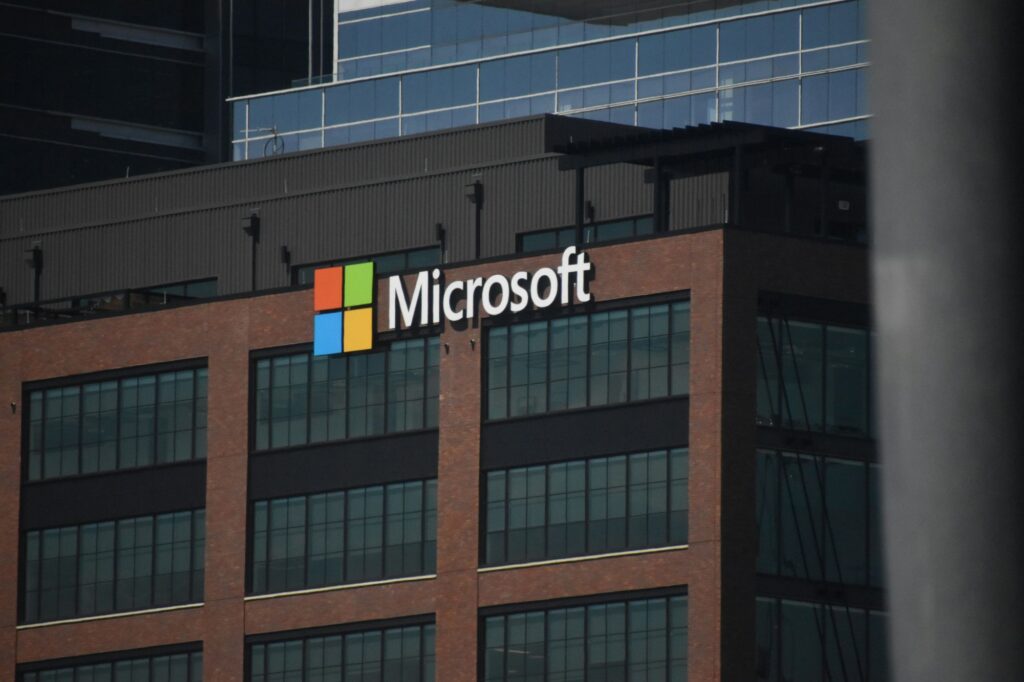Summary
The proxy season refers to the period when most public companies hold their Annual General Meetings, during which shareholders can submit and vote on various proposals. This proxy season, in response to rising antisemitism and Boycott, Divestment, and Sanctions (BDS) activities, JLens focused its advocacy efforts on combating antisemitism and hate, and supporting Israel.
Notably, JLens led a significant campaign–playing offense–with Shareholder Proposal 8 at Meta. The proposal sought transparency into Meta’s content moderation practices on its social media platforms, addressing antisemitism, anti-LGBTQ+, and anti-disability hate. It received the highest level of support from independent shareholders for any human rights-related resolution at a U.S. public company in 2025.
In addition to this, JLens played defense; opposing four major proposals aligned with BDS campaigns at prominent companies, including Alphabet, Lockheed Martin, Intel, and General Dynamics. Both ISS and Glass Lewis, leading proxy advisory firms, recommended voting against these BDS proposals.
Meta Proposal 8: Holding Social Media Platforms Accountable for Hate
What happened: JLens filed shareholder Proposal 8 at Meta Platforms, Inc., urging the company to take stronger action against hate on its platforms, specifically calling for a public report on the company’s effectiveness in addressing antisemitism, anti-LGBTQ+ hate, and anti-disability hate across its platforms, including Facebook and Instagram. The proposal requested that Meta evaluate the effectiveness of its policies and enforcement mechanisms for moderating hateful content across their services.
Why this matters: ADL research from its 2024 Report on Online Hate and Harassment shows that Jews—and other marginalized communities—are disproportionately affected by identity-based abuse, prompting many users to pull back from online spaces. According to the same ADL Report, 22% of Americans experienced severe harassment on social media in 2024 and 34% of Jewish adults said they had been targeted because of their religion—nearly double the 18% reported by non-Jewish adults. Despite widespread pressure from investors and users, Meta actively reversed policies meant to prevent hate on its platforms. Meta’s new policies, which rolled back content moderation practices, have allowed for increased hate on its platforms. Meta enables harassment and hate on its platforms by failing to moderate problematic content, and its platforms remain the ones where users report experiencing online harassment.
Results: According to the company’s Form 8-K, the proposal received 14.6% overall support at Meta’s Annual Shareholder meeting. However, this number is significantly skewed by Meta’s dual-class share structure, which gives CEO Mark Zuckerberg 61% of total voting power, despite holding a minority equity stake. When adjusted to reflect only independent shareholders, support for the proposal jumps to 46.8% – making it the highest-performing human rights-related shareholder proposal of the 2025 season.
Proposal 8 was endorsed by both major proxy advisory firms, ISS and Glass Lewis, which many investors rely on for voting recommendations. This highlights the material risks posed by online hateful content and the need for greater transparency from Meta.
What’s next: The widespread support for Proposal 8 signals broad investor concern around the role of tech platforms in amplifying hate. Additionally, by receiving more than 5% of the SEC’s resubmission threshold, Proposal 8 is eligible for resubmission in future years.
Alphabet Proposal 9: Cloud Services Targeted for Ties to Israeli Defense
What happened: Proposal 9, filed by Zevin Asset Management on Alphabet’s proxy statement, specifically cited Alphabet’s involvement in Project Nimbus, a cloud-computing project used by the Israeli government for both military and civilian purposes, as justification for evaluating the human rights implications of Alphabet’s technologies. The proposal called for increased scrutiny of customer use of Alphabet technologies in sensitive geopolitical contexts. The company’s Board of Directors recommended voting against the proposal. JLens engaged with leading proxy advisory firms and major institutional shareholders to educate them on why this proposal represented a ploy by the BDS movement to weaken Israel’s national security rather than a serious human rights evaluation.
Why this matters: JLens criticized the proposal as a politically motivated effort to delegitimize Israel under the guise of furthering human rights accountability. This campaign serves as a key reminder of the significance of distinguishing between legitimate human rights due diligence and the politicization of ESG frameworks to target Israel. The proposal mirrored longstanding BDS-aligned efforts to isolate Israel under the cover of corporate responsibility language.
Results: According to Alphabet’s Form 8-K, Proposal 9 received 4.5% overall support at the 2025 Annual Shareholder Meeting. Both major proxy advisory firms, ISS and Glass Lewis, also recommended against the resolution.
What’s next: The proposal failed to meet the SEC’s 5% resubmission threshold on an adjusted basis, and therefore will not be eligible for resubmission next year. Its failure to gain traction among shareholders, and the rejection from both ISS and Glass Lewis, is a powerful signal that investors will not allow BDS pressure campaigns to hijack the language of corporate responsibility.
General Dynamics Proposal 4: Human Rights Assessment Aimed at Arms Sales to Israel
What happened: Shareholders were asked to vote on Proposal 4, filed by the Franciscan Sisters of Allegany, at General Dynamics’ 2025 Annual Meeting, which called for the company to conduct a Human Rights Impact Assessment. The proposal specifically cited General Dynamics’ sales of arms to Israel as justification for the report, implying that such sales may contribute to human rights concerns. The company’s Board of Directors recommended voting against the proposal, and JLens urged shareholders to vote against.
Why this matters: This proposal fits into a growing pattern of BDS-aligned shareholder initiatives that attempt to politicize human rights language in order to isolate Israel. By singling out the company’s defense contracts with the Israeli government, this proposal reflects a biased framing of corporate responsibility. JLens noted that this was part of a coordinated campaign using shareholder activism to pressure corporations into severing ties with Israel and delegitimize the Jewish state.
Results: According to General Dynamic’s Form 8-K, at the May 7, 2025 Annual Meeting, the proposal received just 5.49% support, with both ISS and Glass Lewis recommending voting against.
What’s next: This proposal barely exceeded the SEC’s 5% resubmission threshold and while it is technically eligible for reintroduction next year, the low vote reflects minimal shareholder support and underscores the resolution’s deeply politicized nature.
Lockheed Martin Proposal 5: Ethical Oversight Used to Single Out Israel
What happened: At the 2025 Lockheed Martin Shareholder Meeting, investors were asked to vote on Proposal 5, which questioned the company’s sale of military equipment to Israel and implied a misalignment between Lockheed Martin’s political activities and its human rights commitments. Proposal 5 was filed by a coalition of religious shareholders, including the Sisters of St. Francis of Philadelphia, the Sisters of Charity of Saint Elizabeth, the School Sister of Notre Dame, and the Benedictine Sisters of Mount St. Scholastica. JLens and ADL publicly opposed the resolution.
Why this matters: Proposal 5 represented another instance of activist shareholders using ESG proposals to isolate the Jewish state under the guide of ethics and human rights. “Under the guise of an alleged concern for human rights” said ADL CEO Jonathan Greenblatt, “these proposals are actually designed to delegitimize the Jewish state, a major objective of the Boycott, Divestment, and Sanctions (BDS) movement”.
Results: The Board of Directors recommended shareholders vote against Proposal 5, as did both ISS and Glass Lewis. According to Lockheed Martin’s Form 8-K, at the May 9, 2025 Annual Meeting, the proposal received 9.84% of the vote.
What’s next: This result does not represent meaningful investor support, and sends a clear signal that shareholders did not endorse its biased framing or objectives. However, it is eligible for refiling next year.
Intel Proposal 5: Ethical Impact Assessment Weaponized to Isolate Israel
What happened: At Intel’s 2025 Annual Shareholder meeting, investors were asked to vote on Proposal 5, which called on the company to conduct an “Ethical Impact Assessment” of its operations in Israel. The proposal was submitted by an individual filer, Nicholas Collins, a former employee of Intel. Proposal 5 referenced broad and unsubstantiated allegations of Israeli human rights abuses as justification for the assessment. While the proposal used general human rights language, the resolution clearly targeted Intel’s operations in Israel and framed its presence in the country as ethically controversial without reference to legitimate context or balanced perspective.
Why this matters: By focusing solely on Israel while ignoring Intel’s operations in countries with serious human rights concerns, such as Saudi Arabia, Proposal 5 reflected a selective and politicized narrative. This use of the shareholder resolution process to indirectly endorse the goals of the BDS movement, especially the goal of delegitimization of the Jewish state, was met with swift opposition from JLens and ADL.
Results: Intel’s Board of Directors recommended a vote against Proposal 5. ISS and Glass Lewis also recommended against, citing the lack of material relevance and biased framing of the issue. According to Intel’s Form 8-K, at the May 6, 2025 Annual Meeting, the proposal received 9.64% support.
What’s next: Though this is above the SEC’s 5% resubmission threshold, the result remains well below meaningful investor support and demonstrates that shareholders broadly rejected the resolution’s biased framing. JLens remains committed to ensuring that ESG and human rights tools are used with integrity, not as a means of endorsing antisemitic goals.
Proxy Season Campaign Results:
|
Company |
Shareholder Resolution Goal |
AGM |
ISS Benchmark Policy |
Glass Lewis Benchmark Policy |
Vote % |
|
Intel |
AGAINST |
5/6/2025 |
AGAINST |
AGAINST |
9.64% |
|
General Dynamics |
AGAINST |
5/7/2025 |
AGAINST |
AGAINST |
5.49% |
|
Lockheed Martin |
AGAINST |
5/9/2025 |
AGAINST |
AGAINST |
9.84% |
|
Meta |
FOR |
5/28/2025 |
FOR |
FOR |
46.8% (independent shareholders) |
|
Alphabet |
AGAINST |
6/6/2025 |
AGAINST |
AGAINST |
4.5% |
Join JLens in Building on This Momentum
JLens’ results during the 2025 proxy season proved that principled shareholder advocacy works but this work is far from finished. As JLens prepares for the 2026 season, concerned investors are invited to support the Jewish community’s shareholder advocacy by joining JLens’ Jewish Investor Network. To stay up to date on all of JLens’ investor research and advocacy, sign up to receive the newsletter.




